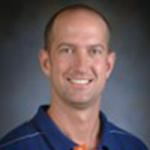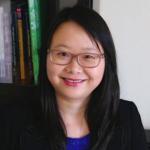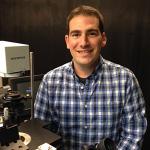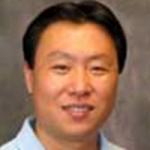


Select one of the options below:
Earn your engineering master’s in a flexible, online program ideal for working professionals.
The Master of Materials Engineering program at CSU offers a coursework-only, non-thesis degree tailored for professionals looking to enhance their knowledge in materials science and engineering.
Covering the core MSE triad:
The program provides a comprehensive understanding of key concepts through a flexible, online learning format.
In addition to core coursework, students can choose from over 35 elective courses that align with their specific interests and career goals. This diverse curriculum ensures that you can customize your learning experience and deepen your expertise in areas that matter most to your professional development.
Electives are listed in “MME Online Program Elective Options” pdf.
With CSU’s flexible online format, the program allows you to balance your studies with professional commitments. Gain hands-on experience with remote instrumentation and practical skills without the need to disrupt your career, ensuring you can apply what you learn in real-time.
Graduates of the Master of Materials Engineering program are equipped with the skills to take on diverse roles in the materials science and engineering field. With advanced knowledge in materials processing, structure, and properties, you’ll be well-prepared for positions in a variety of industries, including aerospace, manufacturing, and technology.
Graduates can pursue roles such as:
These roles offer opportunities to contribute to cutting-edge research and development in rapidly growing industries.
Select one course from the following:
Choose from the MME Online Program Elective Options form.

Dr. Travis Bailey joined the Department of Chemical and Biological Engineering as an assistant professor in July of 2005. Dr. Bailey received B.S. degrees in both Chemistry and Chemical Engineering from University of Florida in 1995, and his Ph.D. in Chemical Engineering from the University of Minnesota in 2001. His research interests at Colorado State focus on the synthesis of novel self-assembling polymer systems and their applications in a variety of environments, including polymer-based photovoltaics, ion- and hydro-gel-based membranes and separations media, chemical delivery vehicles, and stimuli-responsive “smart materials. They are interested in the thermodynamics of and dynamics of shape memory and recovery in these types of materials, and developing strategies to exploit these properties in applications such as those listed above.

Dr. Zhe Cheng is originally from China. After getting his Ph.D. in Materials Science & Engineering from Georgia Tech, Dr. Cheng worked as a research investigator on solar cell and lithium ion battery materials at the chemical & materials conglomerate of DuPont. In 2013, Dr. Cheng joined Florida International University (FIU) as an assistant professor and later became a tenured associate professor. In Aug 2024, Dr. Cheng joined CSU mechanical engineering.
Dr. Cheng’s research interests include novel synthesis and processing of high temperature and ultra-high temperature ceramic materials; new ceramic electrode and electrolyte materials for electrochemical energy conversion including solid oxide fuel cells (SOFC); ceramic materials for electronic applications including photovoltaics (solar cells); in situ characterizations for fundamental understanding of ceramic materials and related processing.

Margarita Herrera-Alonso is an associate professor in the Department of Chemical and Biological Engineering and the School of Advanced Materials Discovery. Herrera-Alonso completed her undergraduate and Master of Science studies in chemical engineering at the Universidad Nacional Autonoma de Mexico (UNAM) in 1999.
She received her Ph.D. in polymer science and engineering from the University of Massachusetts Amherst in 2004, and was a postdoctoral research associate at Princeton University until 2007. She returned to UNAM as a postdoctoral research associate and lecturer, prior to joining the Department of Materials Science and Engineering at Johns Hopkins University as an assistant professor in 2010.

Diego Krapf was born in Rosario, Argentina. During his Ph.D. research he worked on infrared optics on nanostructured materials. Then, Prof. Krapf joined the research group of Prof. Cees Dekker in the Netherlands where he focused on single-molecule biophysics using solid-state nanopores. Since August 2007, he serves as a faculty member in the Electrical and Computer Engineering Department at Colorado State University. Prof. Krapf is also a core faculty member in the School of Biomedical Engineering and in the School of Advanced Materials Discovery. His current research interests include stochastic processes and cellular biophysics at the single-molecule level, with particular emphasis on membrane and cytoskeleton dynamics.

Before joining Colorado State University as an assistant professor in August, 2016, Dr. Ma was an assistant project scientist at University of California, Irvine. She earned her Ph.D. in materials science and engineering from University of California, Davis in December, 2010, and continued her postdoctoral research at UC Davis during January, 2011 to November, 2015. She was also a lecturer for an upper-level undergraduate course, Materials in Engineering Design, at UC Davis from April, 2014 to June, 2015. Dr. Ma received her B.S. in materials physics from University of Science and Technology of China in June, 2006.
Dr. Ma’s research interests sit at the interface of materials science, mechanical engineering and sustainability. We are interested in fabrication and characterization of advanced materials that contain nanoscale microstructural features for high performance such as high specific strength, high ductility, improved reliability and lifetime. We perform mechanical testing at small scales and in localized regions such as boundaries and interface in the materials using cutting-edge nanoindentation technique. The objective is to uncover new processing-structure-properties correlation in advanced nanomaterials for next-generation structural, electronic, and energy components. Her recent research activities focus on multiscale hierarchical structured materials, functionally graded materials, low-work-function electrode materials, additive manufacturing (AM) and sustainability issues associated with metal AM.
Dr. Ma is a member of TMS (The Minerals, Metals & Materials Society) and serves on the reviewer board for several international circulated journals including Nature Communications, Materials Science & Engineering A, Journal of Materials Science, etc. In her spare time, Dr. Ma enjoys spending time with her family doing outdoor activities such as hiking and swimming.

Solid-state and materials chemistry. Our research revolves around understanding and controlling the formation of materials, their structure and their properties, i.e., materials by design. We focus on manipulating and understanding local chemical environments and their influences on electronic properties (e.g., magnetism) in new materials. Details of the atomistic structures of materials are obtained from advanced synchrotron X-ray and time-of-flight neutron scattering and spectroscopic methods. The overarching theme is correlating structural details of materials with their functional behavior in the development of new and efficient materials of relevance to energy conversion and conservation, for example, new hard magnetic materials and semiconductors for solar energy conversion. The approach is based on asking the question: How does one selectively position (and then find) atoms within a bulk solid?

Solid-state and materials chemistry. Our research revolves around understanding and controlling the formation of materials, their structure and their properties, i.e., materials by design. We focus on manipulating and understanding local chemical environments and their influences on electronic properties (e.g., magnetism) in new materials. Details of the atomistic structures of materials are obtained from advanced synchrotron X-ray and time-of-flight neutron scattering and spectroscopic methods. The overarching theme is correlating structural details of materials with their functional behavior in the development of new and efficient materials of relevance to energy conversion and conservation, for example, new hard magnetic materials and semiconductors for solar energy conversion. The approach is based on asking the question: How does one selectively position (and then find) atoms within a bulk solid?

Dr. Wang joined the faculty at Colorado State University in August 2004, after being a postdoctoral researcher at the University of California – Santa Barbara for two years.
He is interested in applying advanced theories and computer simulation techniques to study complex fluids at nano- to meso-scales, including polyelectrolytes, block copolymers and polymer blends, nanocomposites, self-assembly, structure-property relations, and surface and interface phenomena.

Dr. Weinberger, joined Colorado State University’s mechanical engineering department in the Fall of 2016. He has spent the past three years as an Assistant Professor in the Mechanical Engineering and Mechanics Department at Drexel University.
His professional experience includes time as a Mechanical Engineer at Lockheed Martin (2001-2005) as well as working at Sandia National Laboratories as a Harry S. Truman Fellow (2009-2012) and a Senior R&D S&E Staff member (2012-2013). Dr. Weinberger holds a Ph.D. and M.S. in Mechanical Engineering from Stanford University and a B.S. in Mechanical Engineering from Cal Poly, San Luis Obispo.
Credits earned in the Master of Materials Engineering program can be seamlessly transferred into CSU’s MSE MS-thesis or PhD programs, offering a pathway for continued education. This flexibility allows students to expand their academic pursuits without repeating coursework, making it easier to achieve advanced degrees.
The program features a diverse team of faculty from various disciplines, including engineering, physics, and chemistry, giving students a well-rounded education in materials science. This interdisciplinary approach exposes students to different perspectives, ensuring a comprehensive understanding of the field. With faculty who are leaders in both academia and industry, students gain insights that bridge theory and real-world applications, equipping them with knowledge that’s immediately applicable in professional settings.
Gain hands-on experience with cutting-edge equipment such as XRD, SEM, and MTM, all through remote access. This feature allows students to perform practical experiments and interact with lab staff from anywhere, using iPads to control instrumentation in CSU’s advanced core facility. These real-world experiences provide valuable technical skills that are crucial for careers in materials science, without requiring students to be physically present in a lab environment.
With a competitive tuition rate of $739 per credit, CSU’s Master of Materials Engineering offers an affordable alternative to other graduate programs, particularly those offered by public institutions. Students can customize their learning experience with over 35 elective courses, ensuring their education aligns with their career goals and interests while staying within their budget.
| Fall semester | June 1 |
| Spring semester | December 1 |
Start your application online and upload materials directly into the online system. You can save your progress and return any time.
Apply Now*If you do not meet minimum requirements, please contact carolina.banuelos@colostate.edu to get your pre-requisites and prior experience evaluated before formally applying for the program. Depending on academic background, students without a bachelor's degree in materials science & engineering may also be required to take additional courses. Please use the following email subject line: M.M.E. Online – Admission Inquiry – YOUR NAME.
List of required materials:
Complete the online graduate application form and pay the nonrefundable application processing fee (payable online). As soon as you have completed the required information, please submit your application. Your application will not be reviewed until it is complete and all required materials have been received.
CSU's Graduate School offers several application fee waiver opportunities. Visit their website to determine if you are eligible for a waiver.
Request one official transcript of all collegiate work completed from all institutions attended. Transcripts from Colorado State University are not required. Transcripts must be received directly from the originating institution to be considered official.
Please Note: Students may be unconditionally admitted and registered in their first semester of courses with an unofficial transcript. Official transcripts must be submitted, prior to or during your first semester, before you can register for your second semester of graduate work. Failure to meet this condition will result in your dismissal from the Graduate School and the MME program, no exceptions.
Electronic (preferred): Digital Transcripts must be submitted by the originating institution using a secure service such as parchment, eScrip-Safe, the National Student Clearinghouse, or e-Quals. Transcripts received via emails are considered unofficial. Use institution code 4075 for Colorado State University or gradadmissions@colostate.edu if the secure service requires an email address.
Mail (if necessary) Graduate Admissions Colorado State University – Office of Admissions 1062 Campus Delivery Fort Collins, CO 80523-1062
Proof of English language proficiency is required for applicants from countries or United States territories where there are official languages other than (or in addition to) English. This includes the U.S. territories of American Samoa, Guam, the Northern Mariana Islands, and Puerto Rico.